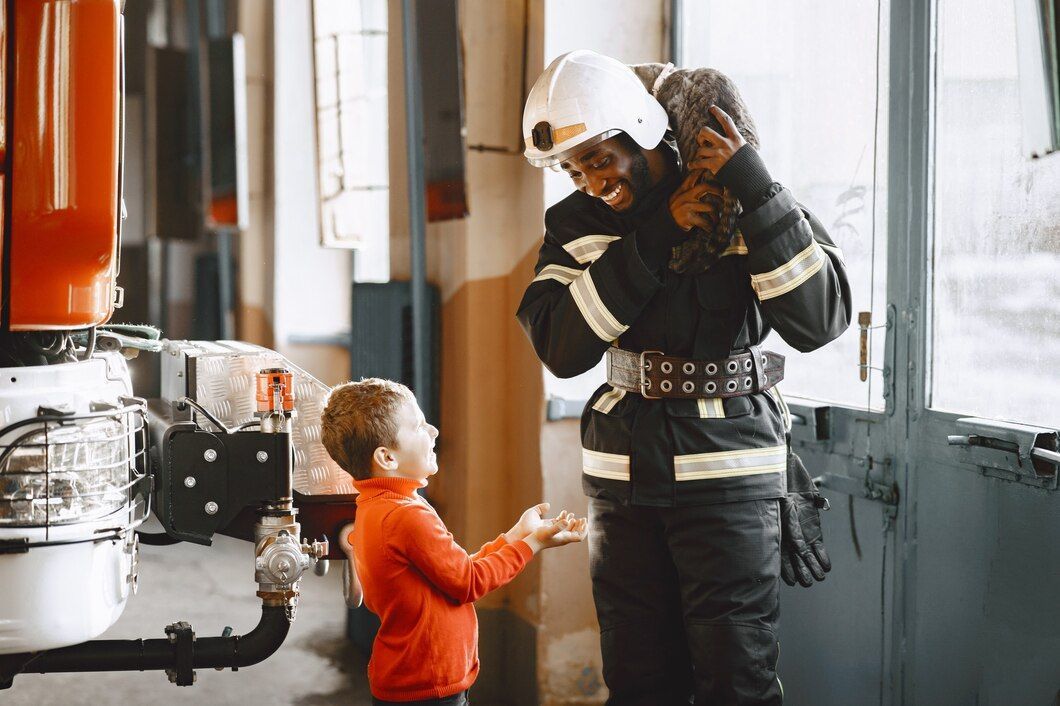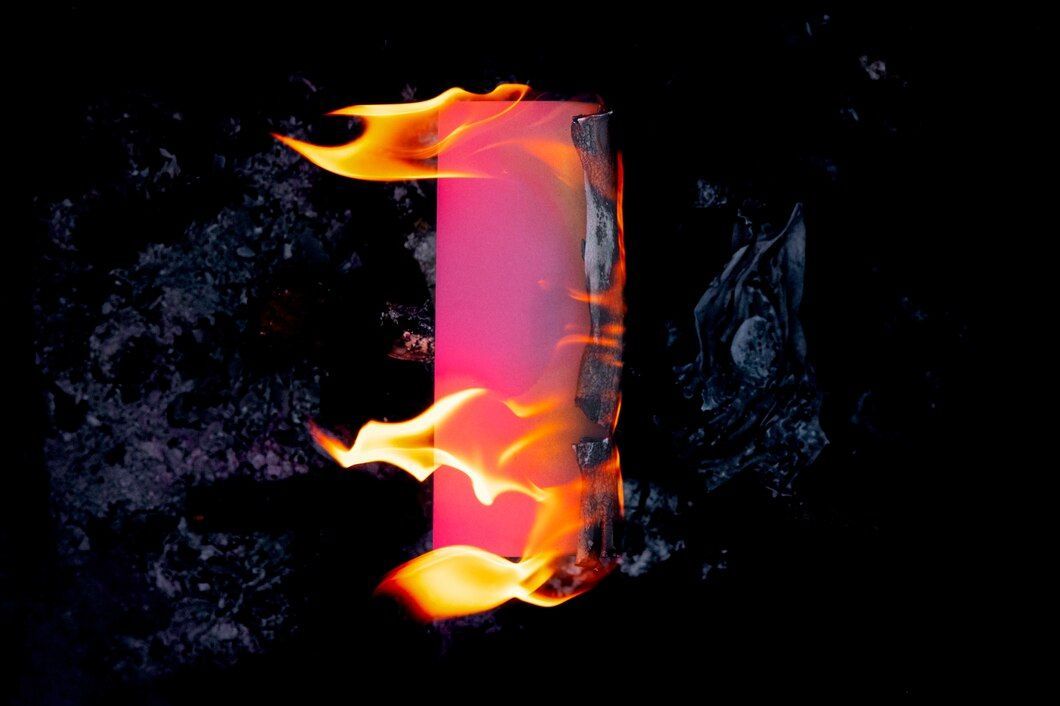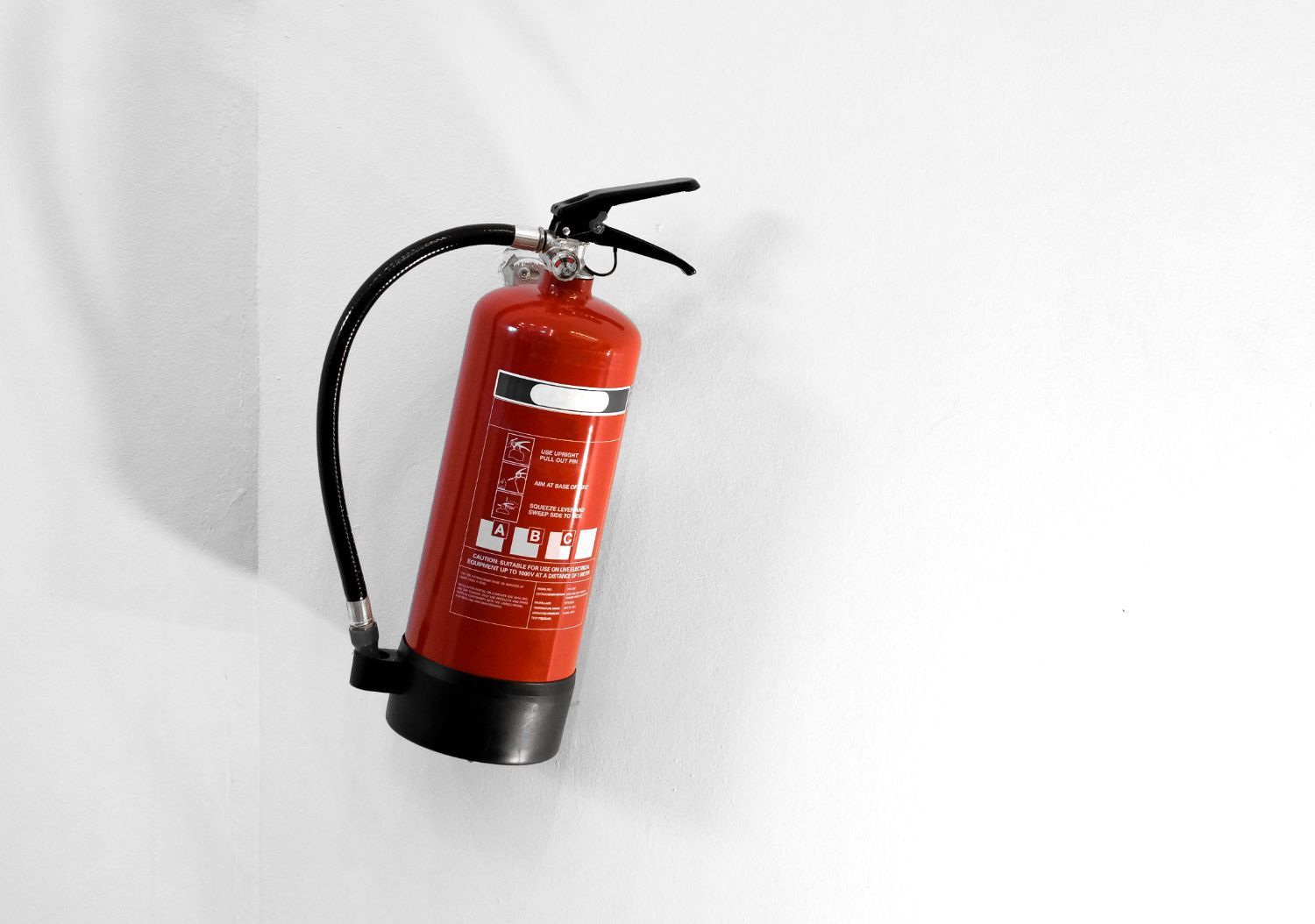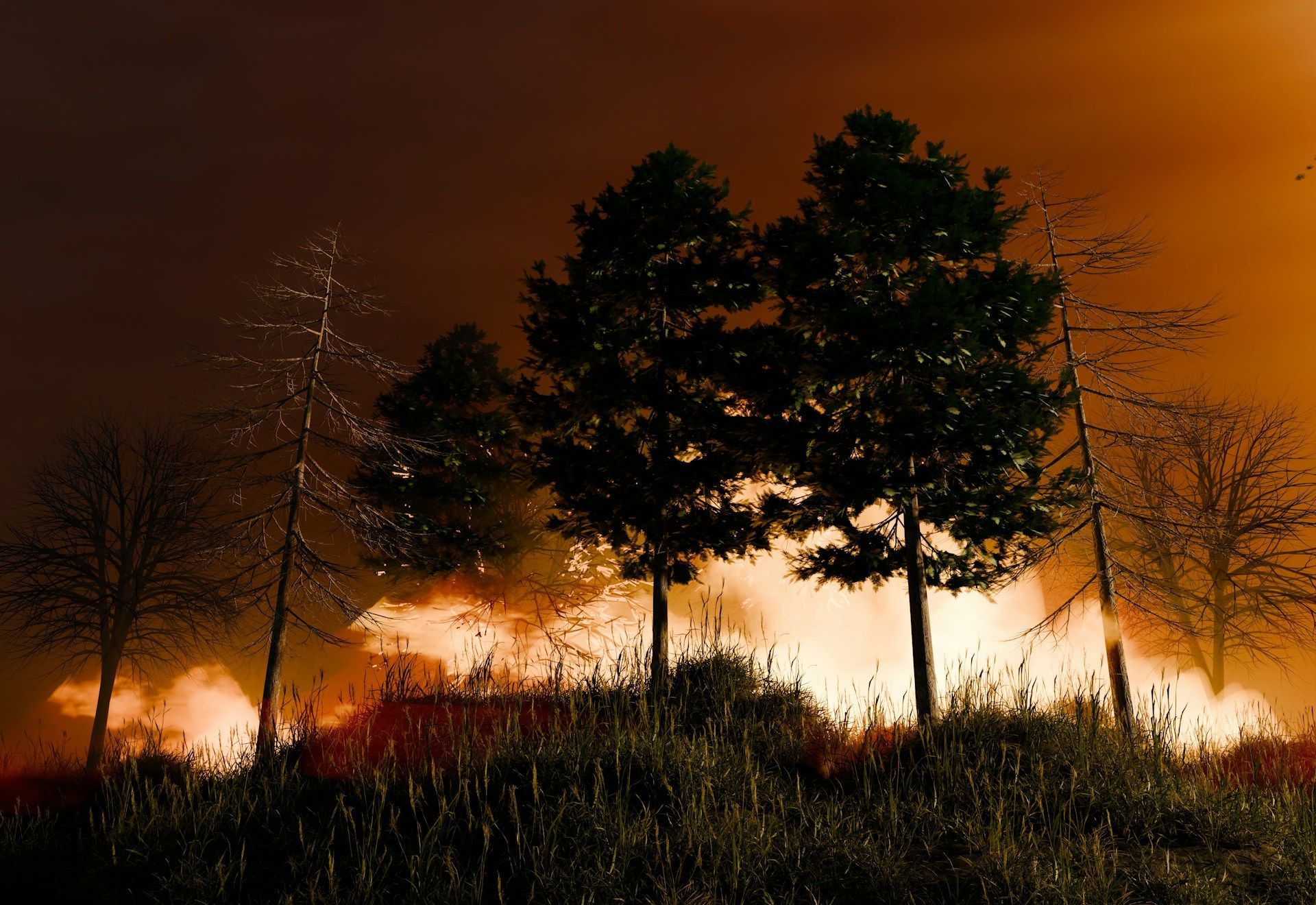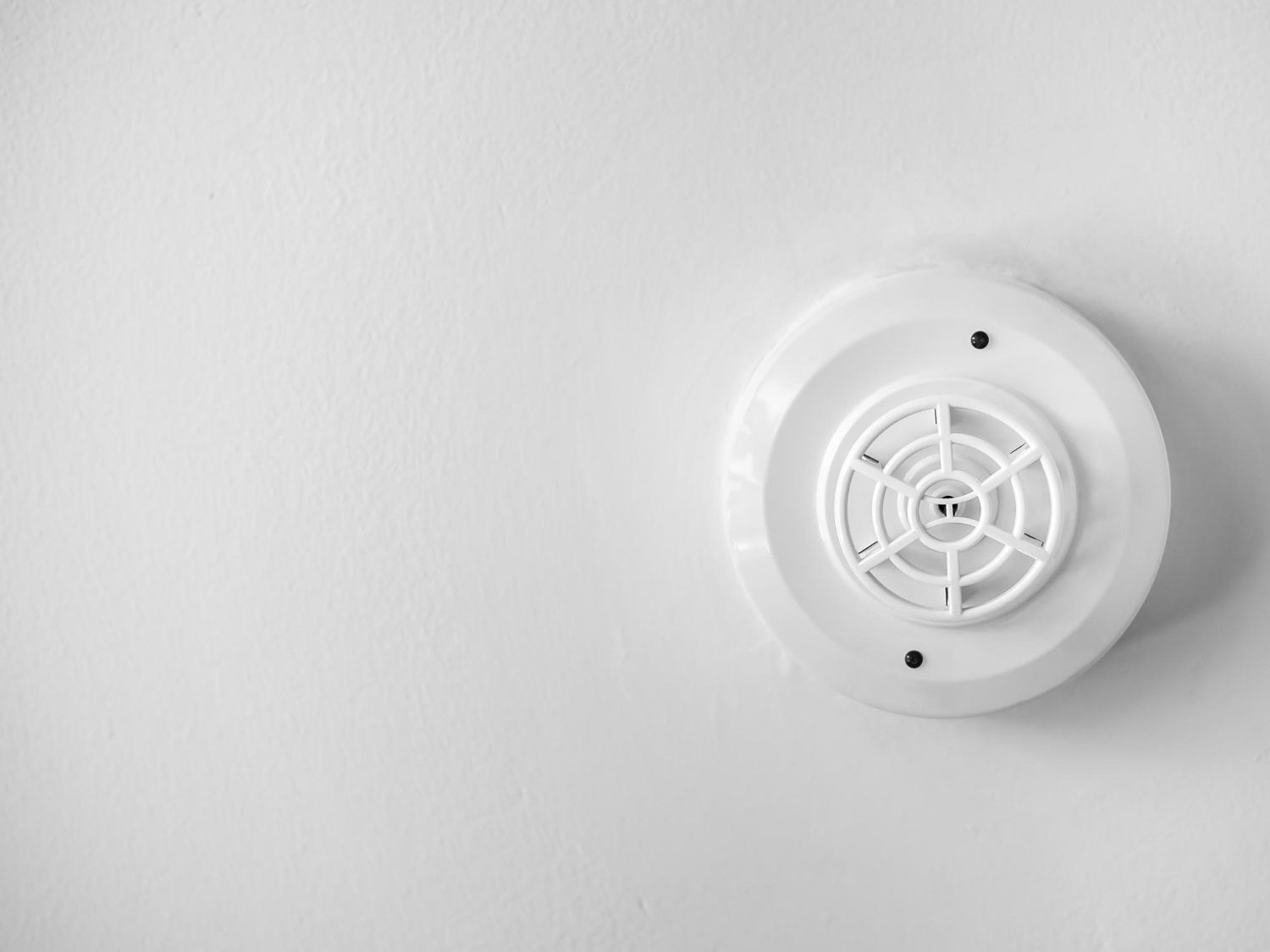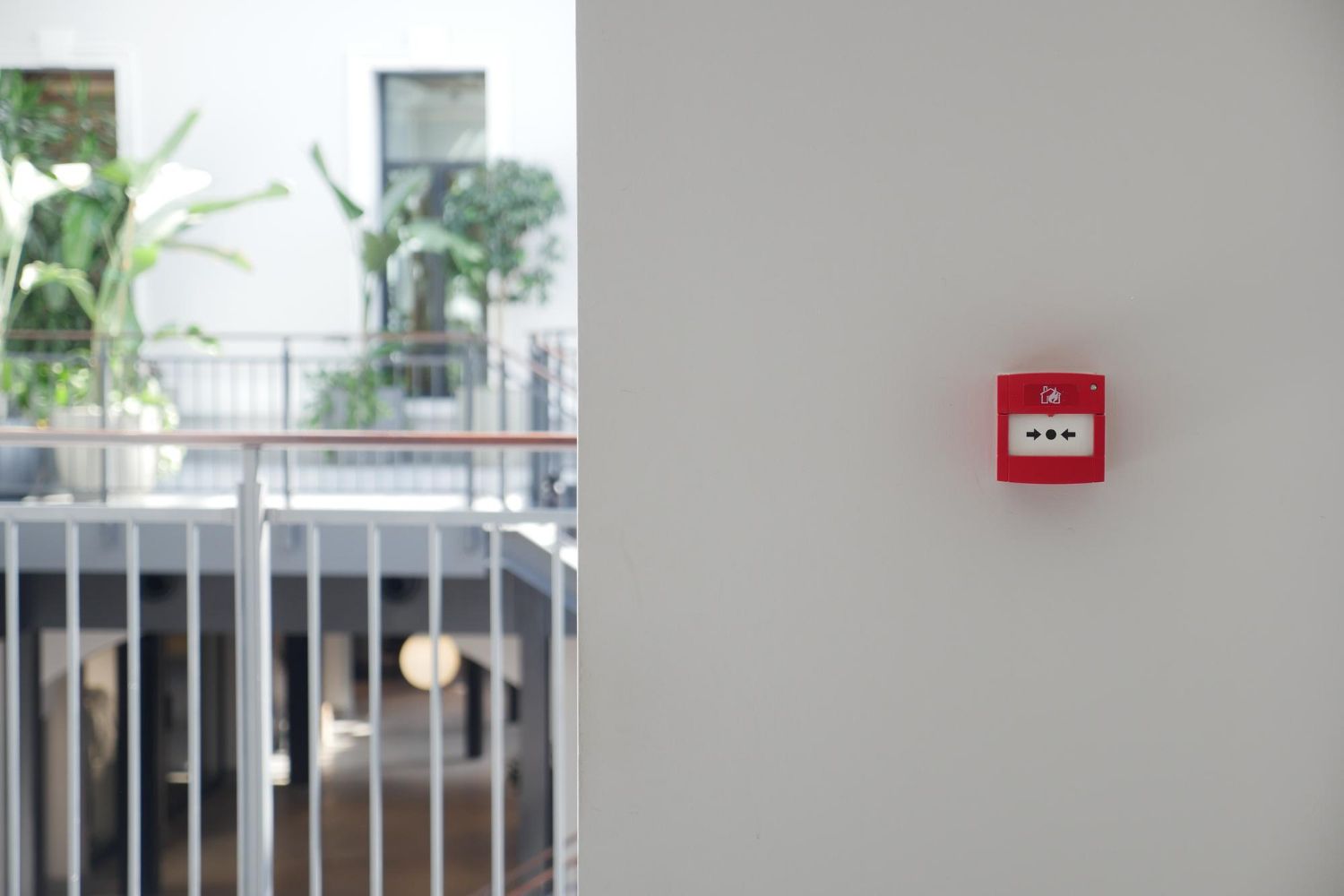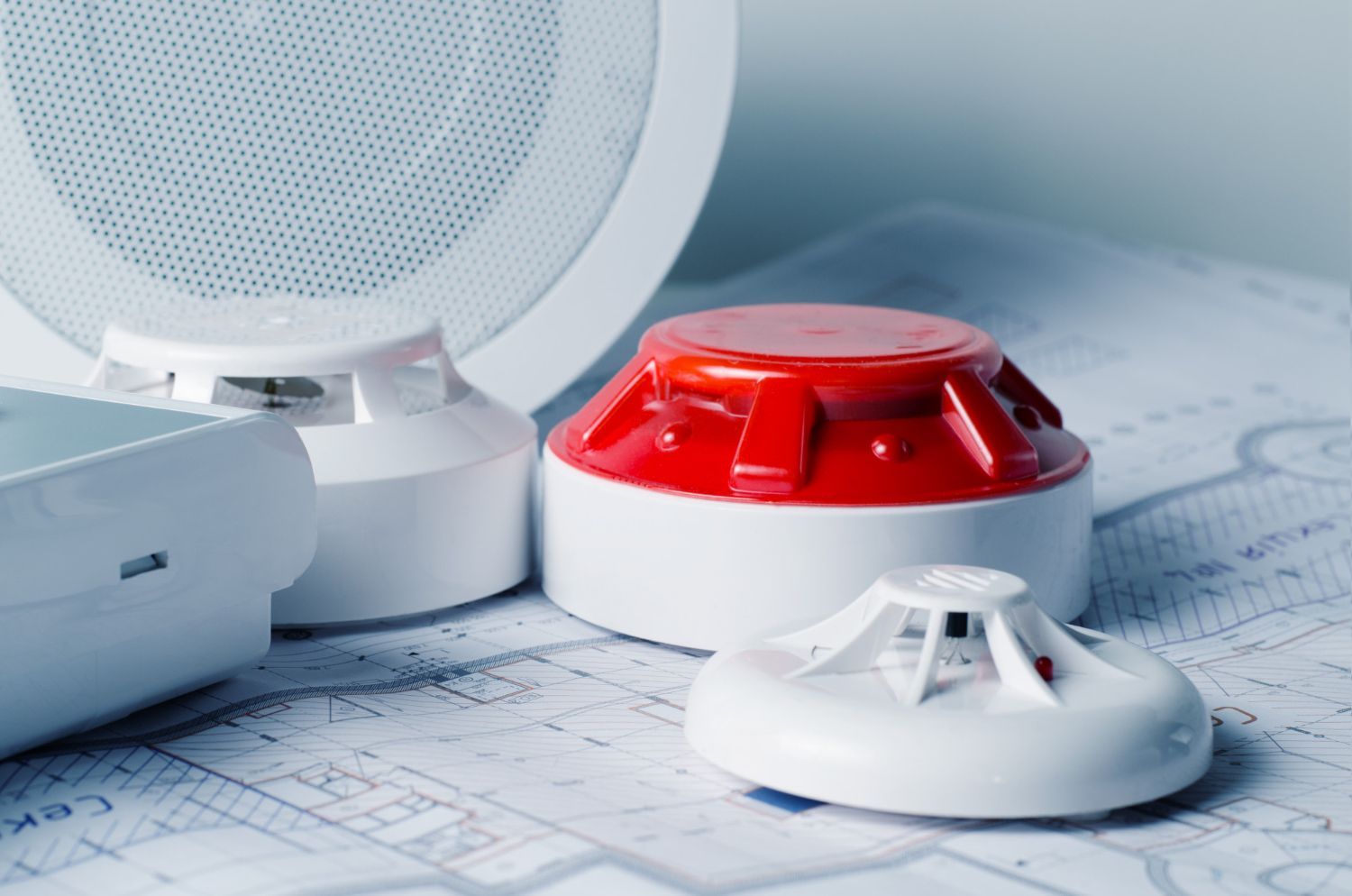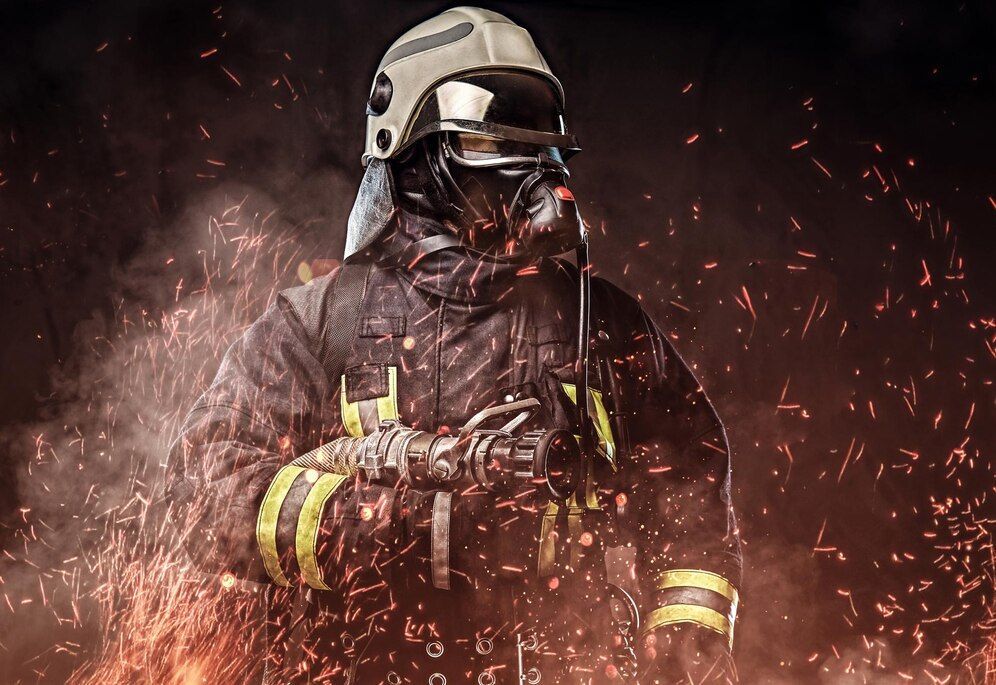Board of Fire Commissioners, Fire District 3,
Township of Old Bridge
Board of Fire Commissioners
Fire District 3
Township of Old Bridge
Fire Sprinklers vs. Smoke Detectors: A Comprehensive Comparison for Homeowners

Fire safety should be of utmost importance to homeowners, ensuring the protection of their property and the well-being of their loved ones. In the crucial moments during a fire, having the appropriate fire safety equipment can make all the difference. Two widely recognized components of a home fire safety system are fire sprinklers and smoke detectors. Selecting the right type of fire protection equipment for your home is crucial, and understanding the differences between fire sprinklers and smoke detectors is essential in making that decision.
In this article, Fire District 3 will delve into the details of fire sprinklers and smoke detectors, exploring their differences in terms of function, cost, effectiveness, installation, and maintenance. By the end of this article, you'll have a clearer understanding of fire sprinklers vs. smoke detectors, enabling you to make an informed choice on which system to trust in protecting your home.
1. Function: How Sprinklers and Detectors Operate
Understanding the primary differences in operation between fire sprinklers and smoke detectors is essential when determining which system is best suited for your needs.
Fire Sprinklers: Fire sprinklers are designed to suppress or extinguish fires by releasing water when a specific temperature is reached (usually 135 to 165°F), indicating a fire is present. Each sprinkler head contains a heat-sensitive element that bursts to release water when the threshold temperature is met, thus targeting the fire directly. Contrary to popular belief, sprinklers activate individually, meaning unheated sprinklers will not release water.
Smoke Detectors: Smoke detectors, on the other hand, are responsible for providing early warning signals in the case of a fire by detecting the presence of smoke in the air. There are two main types of smoke detectors: ionization, which detects fast-flaming fires, and photoelectric, which is better at detecting smoldering fires. Some detectors are combined to offer the benefits of both types. When the detector senses smoke in the air, it triggers an audible alarm to alert occupants of a potential fire emergency.
2. Cost: Installation and Maintenance Expenses
The differences in initial installation costs and ongoing maintenance expenses can influence your decision on whether to install fire sprinklers, smoke detectors, or a combination of both.
Fire Sprinklers: Installation costs for fire sprinklers vary depending on the type of sprinkler system, the size of the building, and whether it is a retrofit or new construction. According to Fire Prevention Canada, the average cost for a residential sprinkler system ranges between $1.00 and $2.50 per square foot for new construction. Maintenance costs for fire sprinklers include periodic inspections, testing, and the replacement of any damaged or corroded parts. Maintenance intervals depend on the type and complexity of the system.
Smoke Detectors: Installing smoke detectors can be significantly less expensive than installing fire sprinklers. Basic detectors can be purchased for as little as $15, while more advanced detectors range from $30 to $60. The NFPA recommends installing at least one smoke detector on every floor and one in each bedroom. Maintenance for smoke detectors includes regular testing (at least monthly), cleaning, and battery replacements (every six months to a year). Battery-powered detectors are easily tested by pressing the button on the unit, while hard-wired detectors require more technical testing.
3. Effectiveness: Comparing Fire Suppression Outcomes
The effectiveness of fire sprinklers and smoke detectors in suppressing fires and saving lives can be significant when making an informed decision.
Fire Sprinklers: According to the NFPA, when fire sprinklers were present, the civilian death rate was 81% lower, and direct property damage was 58% lower compared to fires where sprinklers were not present. Fire sprinklers are known to be effective in controlling fires and limiting damages. They can extinguish the blaze or suppress it while awaiting firefighting assistance.
Smoke Detectors: Smoke detectors save lives by providing early alerts, which allow occupants to evacuate the building before the fire spreads uncontrollably. The NFPA reports that three out of five home fire deaths resulted from fires in properties without working smoke detectors. Smoke detectors are primarily focused on preventing injury and death by giving occupants the crucial warning time needed to escape.
4. Installation and Building Codes
The process of installing fire sprinklers and smoke detectors can have distinct differences and local building code requirements that affect their implementation.
Fire Sprinklers: Installing fire sprinklers, particularly in a retrofit, can be more complicated than installing smoke detectors. The process involves assessing the water supply, installing pipes, and placing sprinkler heads in strategic locations for maximum coverage. Local building codes typically provide guidelines on fire sprinkler installation in new constructions, while mandatory retrofits may be required in some cases.
Smoke Detectors: Installation of smoke detectors is relatively simple and can be done by most homeowners. Battery-powered smoke detectors can be mounted on walls or ceilings with minimal tools, while hard-wired detectors require electrician assistance. Building codes for smoke detector placement vary by jurisdiction, but NFPA 72 provides a standard guide.
In summary, both fire sprinklers and smoke detectors serve unique and vital roles in ensuring fire safety in your home. Fire sprinklers are designed to suppress or extinguish fires, while smoke detectors provide early warning signals to alert occupants. Understanding the differences between these systems is crucial for selecting the best fire safety solution for your home.
Make an Informed Decision for Your Home's Fire Safety
In conclusion, both fire sprinklers and smoke detectors play crucial roles in protecting your family and property from fire emergencies. Each system has its unique function, cost considerations, effectiveness, and installation requirements. Ultimately, the best choice would depend on your individual needs and preferences, local building codes, and your home's architectural design.
To make an informed decision, consult with your local fire safety professionals, such as the experts at Board of Fire Commissioners, Fire District 3, Township of Old Bridge. They can provide valuable guidance on the most suitable
fire safety equipment for your home, along with vital information on fire prevention, education, and community involvement. Explore our resources or contact them for personalized assistance. Together, we can ensure a fire-safe community and safeguard our families and property.
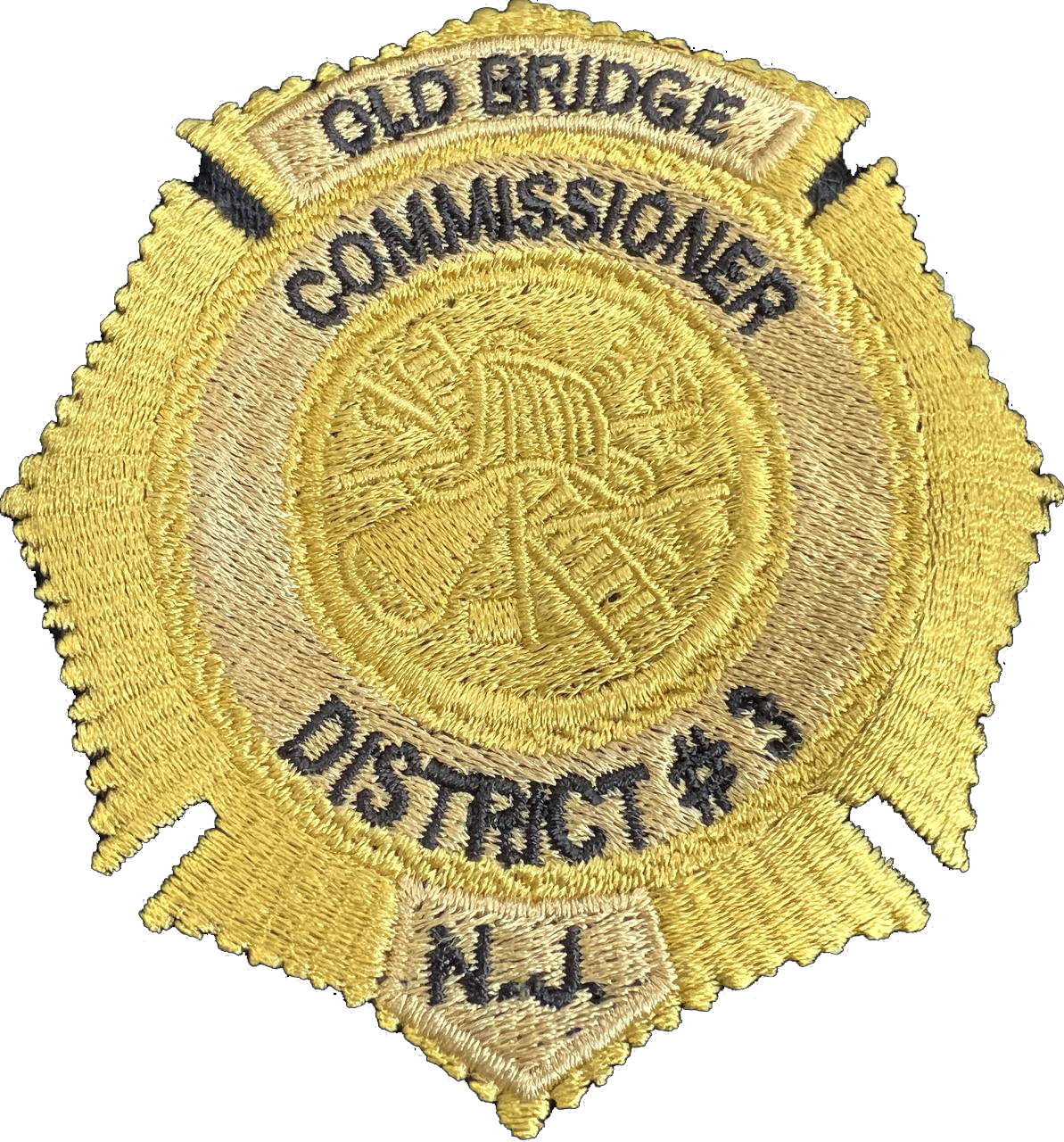
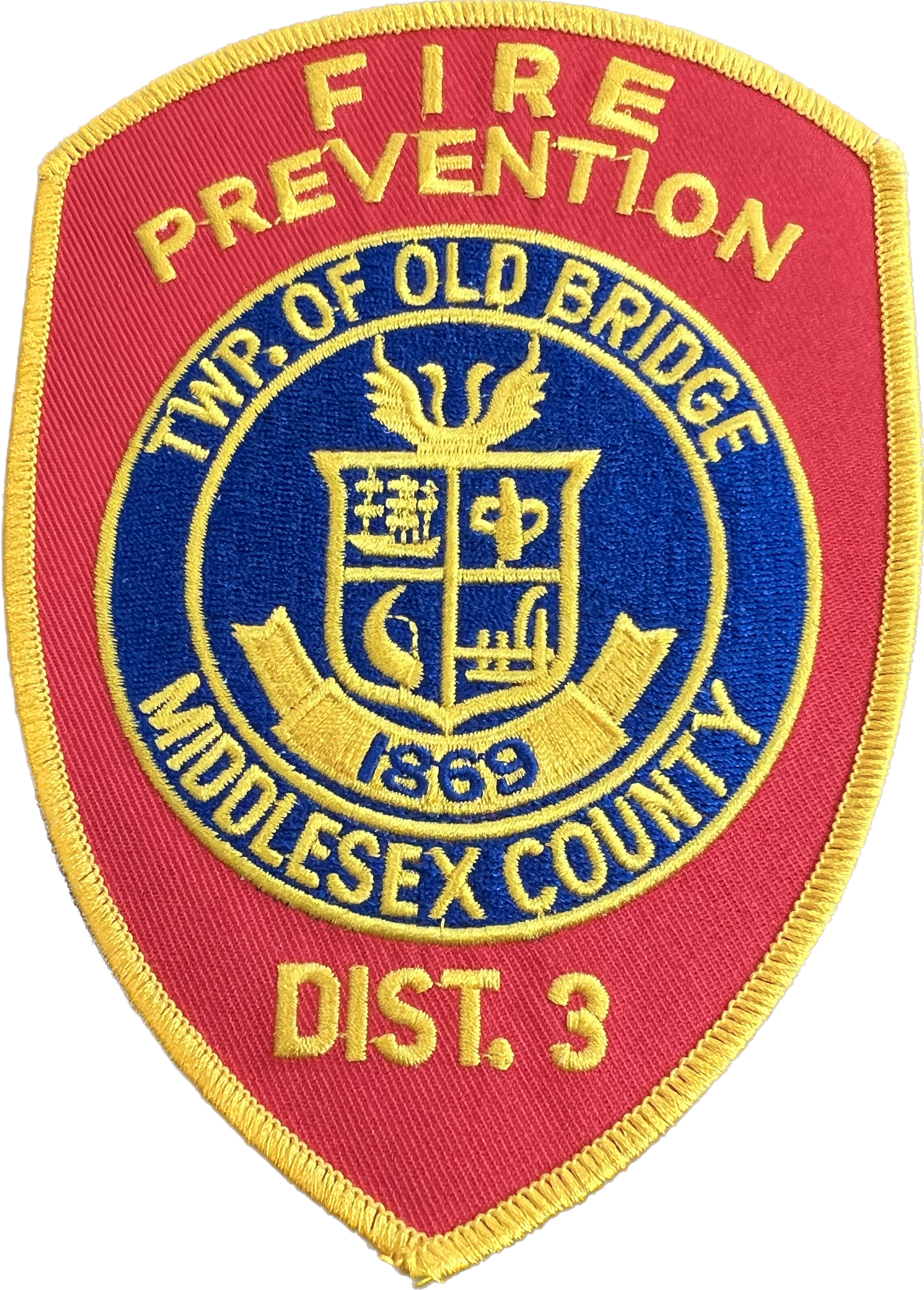
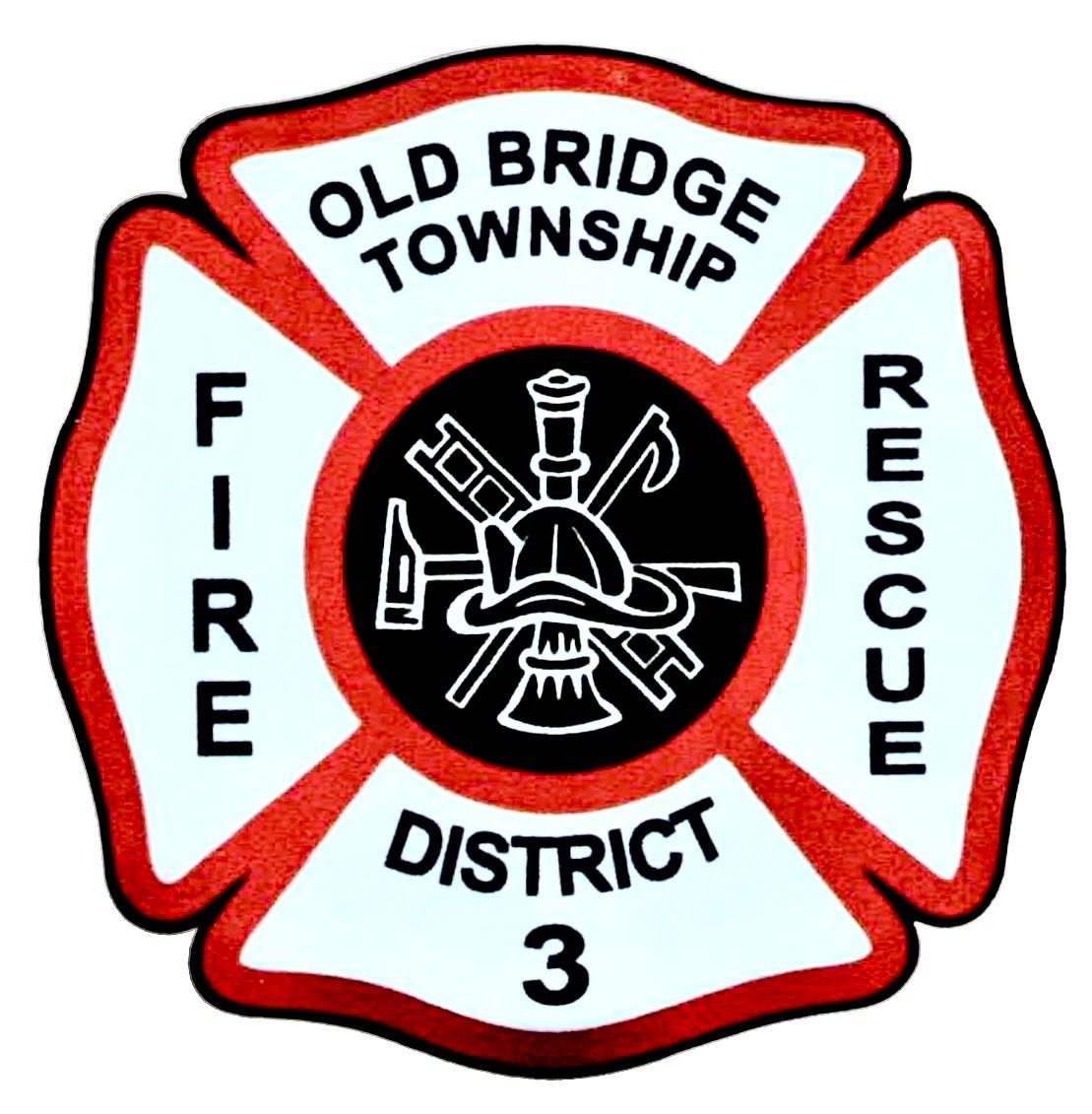



Phone: 732-723-1124 | Email: firedistrict3@obfd3.com
Address: 913 Englishtown Road Old Bridge, New Jersey 08857
We are closed daily from 12 Noon to 1pm for lunch
© 2023 All Rights Reserved | Board of Fire Commissioners, Fire District 3, Township of Old Bridge
All Rights Reserved | Board of Fire Commissioners, Fire District 3, Township of Old Bridge
